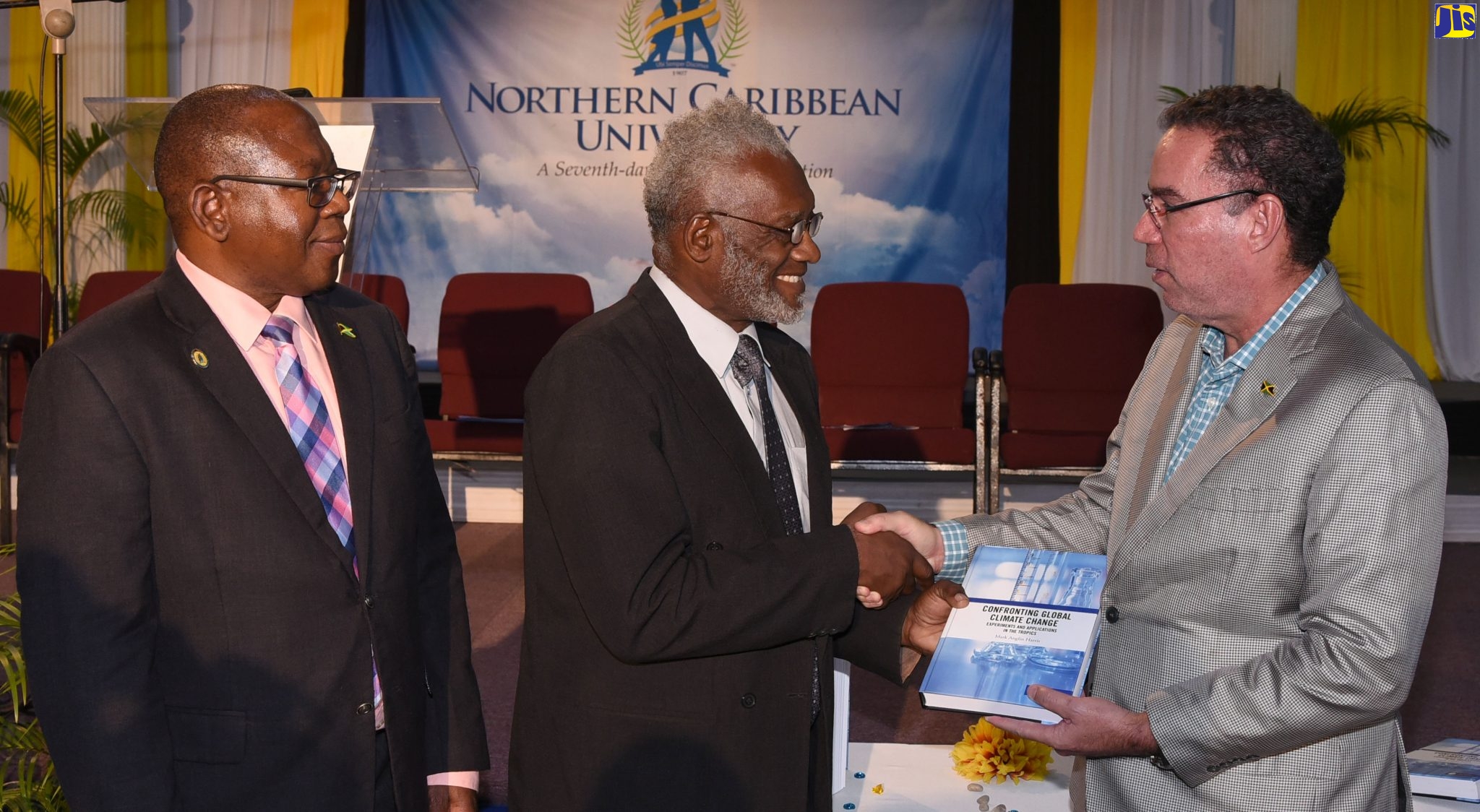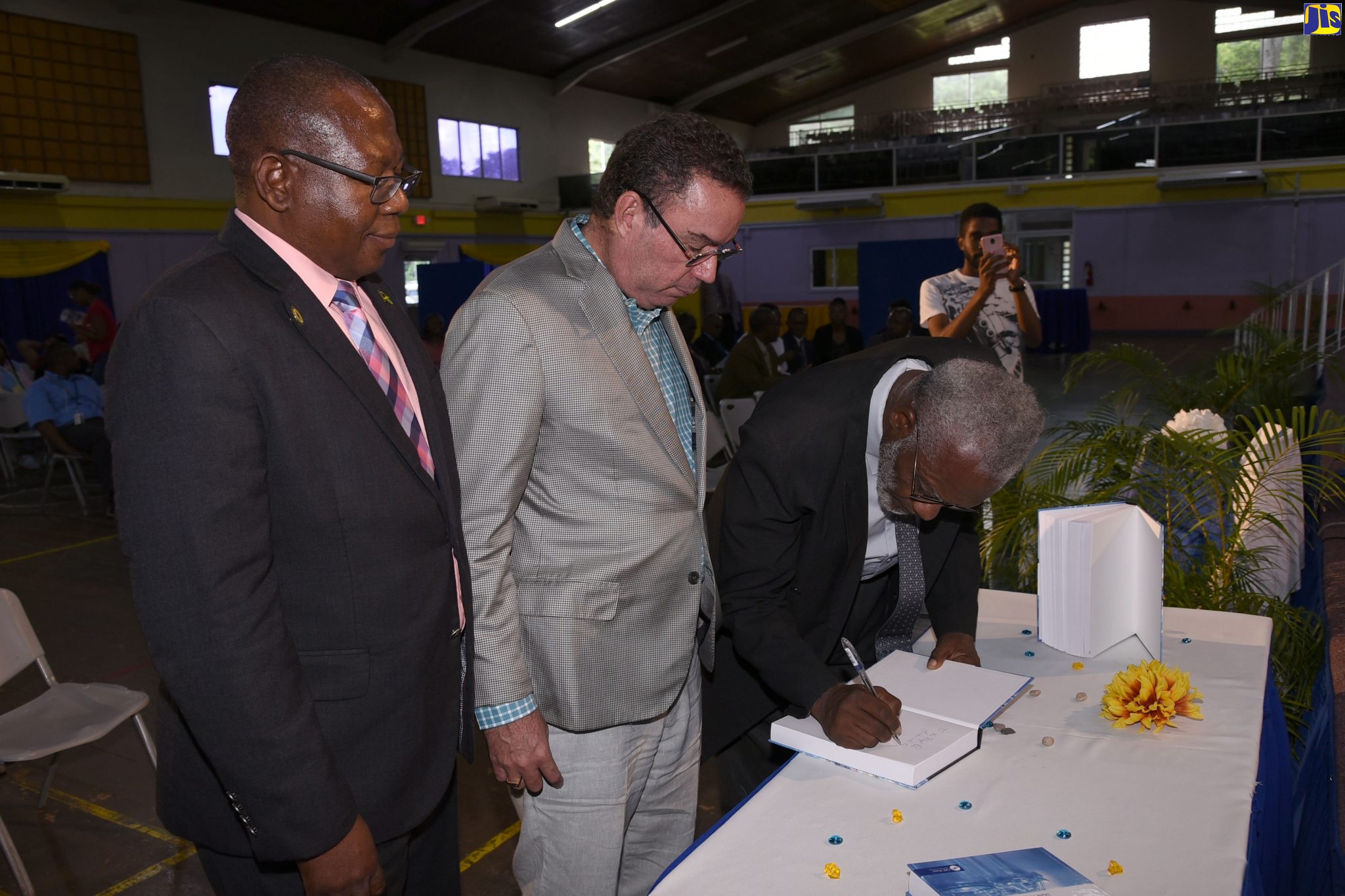Jamaica To Develop Sound Project Proposals To Access Funds From GCF
By: , November 1, 2019The Key Point:
The Facts
- “The preparation of these proposals and other very important activities have been made possible through readiness grants from the GCF. We have the resources and will commence activities to develop a gender and climate change strategy action plan,” Mr. Vaz said, as he delivered the keynote address at the launch of the book: ‘Confronting Global Climate Change: Experiments and Applications in the Tropics’.
- Author of the book is Professor Mark Harris, Environmental Geoscientist at the Northern Caribbean University (NCU), in Mandeville, Manchester. The book, launched at the University on October 30, offers many solutions that could offset the negatives of climate change in tropical countries, such as Jamaica.
The Full Story
Minister with responsibility for Land, Environment and Climate Change, Hon. Daryl Vaz, says Jamaica will be developing sound project proposals to access funds from the Global Climate Fund (GCF).
“The preparation of these proposals and other very important activities have been made possible through readiness grants from the GCF. We have the resources and will commence activities to develop a gender and climate change strategy action plan,” Mr. Vaz said, as he delivered the keynote address at the launch of the book: ‘Confronting Global Climate Change: Experiments and Applications in the Tropics’.
Author of the book is Professor Mark Harris, Environmental Geoscientist at the Northern Caribbean University (NCU), in Mandeville, Manchester. The book, launched at the University on October 30, offers many solutions that could offset the negatives of climate change in tropical countries, such as Jamaica.
Mr. Vaz noted that there are three readiness grants with an approved amount of US$1.4 million, adding that Prime Minister, the Most Hon. Andrew Holness recently announced that Jamaica has accepted the formal letter of approval for the grant to support activities towards listing of a Green Bond on the Jamaica Stock Exchange (JSE).
“This will position Jamaica as the Caribbean country of choice to conduct climate smart and sustainable businesses,” he said.
The Minister noted that next year will see the finalisation of the enhanced Nationally Determined Contributions (NDC) – a part of Jamaica’s obligations to the Paris Agreement. This will be used to indicate the extent to which the country is reducing its greenhouse gas emissions.
Meanwhile, in his overview of the book, Professor Harris acknowledged the contributions of five of his colleagues, who are also lecturers.
The chapters include a look at how climate change increases the number of pests, such as the beet army worm that eats almost everything, but which has the potential to kill entire crops of both types of scallion grown in the island.
“It consistently resists insecticides and the body weight increases with the feeding preference and this was consistent with the higher nitrate content of the red root scallion and the results are that we have to redo our strategies for the control of the beet army worm,” Professor Harris said.
Some of the strategies are outlined in the book, he noted.
The book also deals with an easier way to produce black castor oil and the need to reduce the use of air conditioning, because of the harmful long-term effects of the release of greenhouse gases into the atmosphere.
Professor Harris explained how this could be achieved by putting insulating material between two bricks to reduce the build-up of gases that produce the excess heat that is now being felt, even in places like Mandeville, that were once very cool.
There is also a chapter on the need to restrict the amount of algae in rain-fed collection systems, in order to maintain high levels of water, because drought is now a reality in Jamaica.
He is hoping that people of the Caribbean will use indigenous materials that can help lessen the need for products that harm the environment.



